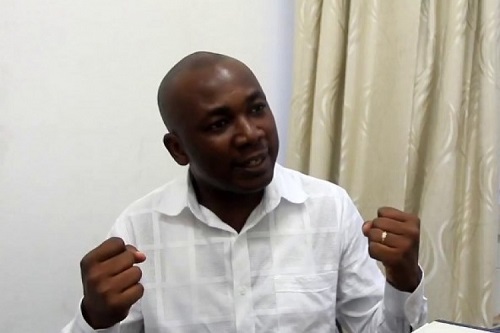Prof Bokpin warns against weaponization of debt relief against Ghana for geo-economic gains by the West
In a recent interview on JoyNews, Professor Godfred Bokpin dissected the intricate web of Ghana’s indebtedness, specifically its relationship with China, and the consequential impact on the nation’s access to vital International Monetary Fund (IMF) support.
Professor Bokpin, during the discourse, posited that Ghana may be excessively focused on a relatively modest component of its external debt portfolio. With only $1.9 billion of its total external debt of $22.4 billion owed to China, he argued that this should not be the primary obstacle standing in the way of progress.
“$1.9 billion out of the total external debt of $22.4 billion should not be the reason why people should suffer unnecessarily,” he stated.
Professor Bokpin also offered a cautionary note, urging the IMF and Western nations to reconsider their stance on Ghana’s external debt restructuring. He expressed concerns about the potential weaponization of debt relief arrangements, where geopolitical and geo-economic interests might overshadow the pressing needs of the struggling nation.
“And I think the IMF or the West, should take another look at it. Otherwise, they may be weaponizing this whole debt relief arrangement in a way that inures more to their benefit within the global geopolitics and geo-economics fragmentation rather than the country they are seeking to help,” he cautioned.
Ghana currently awaits the arrival of its second tranche of financial support from the IMF. However, there is a significant hurdle to overcome, as the restructuring of external debt is mandated as a prerequisite for the aid package. Failure to meet this requirement could potentially result in a delay in the disbursement.
Since the onset of the Covid-19 pandemic, Ghana has grappled with a series of economic challenges that have intensified its fiscal pressures. Consequently, the IMF’s assistance has become indispensable for stabilizing the nation’s economy, addressing budget deficits, and alleviating the adverse effects of the pandemic on its citizens.
On a related note, Ghana recently received its first tranche of IMF support – an infusion of $600 million out of the total $3 billion aid package. These funds have been earmarked for crucial purposes, including bolstering the balance of payments, supporting the national budget, maintaining foreign exchange rate stability, and controlling inflation.
As the nation navigates these economic complexities, the handling of its debt obligations, particularly in the context of its relationship with China and IMF support, emerges as a pivotal topic deserving of close scrutiny.







